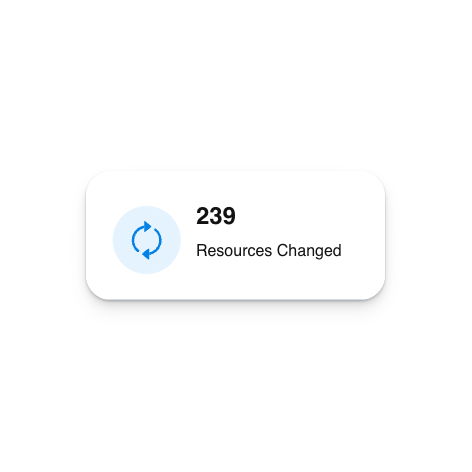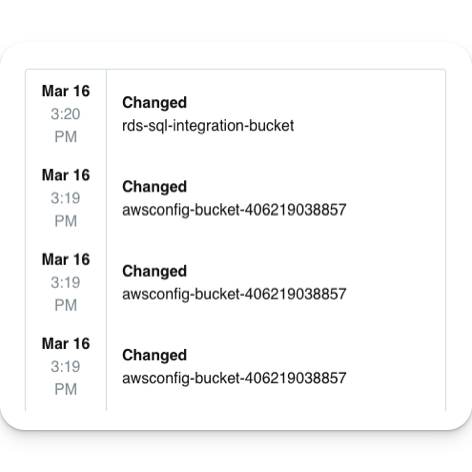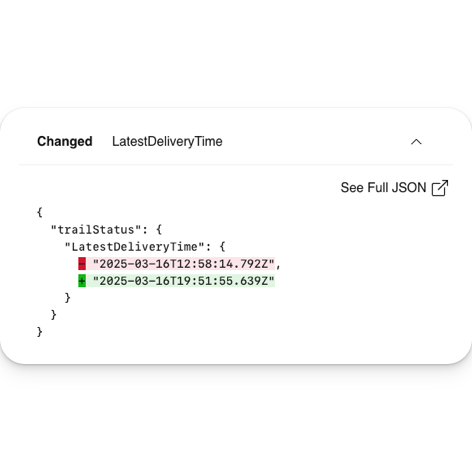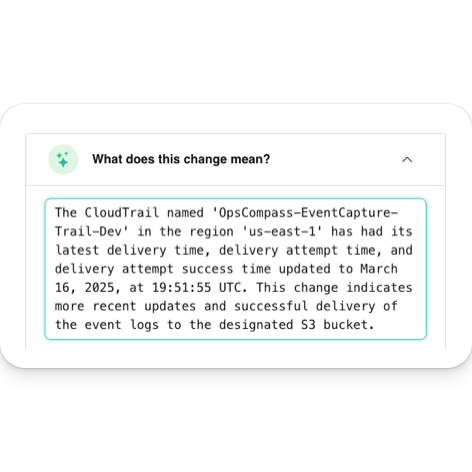opscompass configuration drift
Configuration Drift for Hybrid Environments
Detect, monitor, and remediate configuration drift with real-time visibility and actionable insights.
Stay in Control of Your Configurations
Across Your Clouds and Databases
In dynamic IT environments, configuration drift is inevitable. Quickly understanding what changed is key to finding problems. Left unchecked, configuration drift can lead to compliance violations, security vulnerabilities, and other risks that can be costly to your business.
Detect Drift Instantly
Automatically detect configuration drift across AWS, Azure, Google Cloud, Oracle, Microsoft SQL Server, and VMware, providing real-time alerts and insights.

Visualize Changes Over Time
Track and visualize configuration changes across your assets, enabling you to quickly identify and address drift before it impacts your operations.

Understand What Changed and How to Fix It
Access powerful remediation tools that help you revert unauthorized changes and ensure compliance across all platforms.

AI-assisted Drift Analysis
Tailor drift alerts and summaries to your organization’s specific needs, ensuring you receive the most relevant and actionable information.

Proactive Configuration Drift Detection
Opscompass continuously monitors for configuration drift across AWS, Azure, Google Cloud, Oracle Cloud, Oracle Database, Microsoft SQL Server, and VMware, providing real-time alerts when changes occur.
Timeline of Key Changes
View a timeline of configuration changes across your assets, making it easier to pinpoint when and where risky drift occurred.
Drift Smart Summaries
Receive AI-driven, tailored summaries of drift events that help you prioritize remediation efforts based on the impact and risk level.
Multi-Platform Support
Manage and monitor configuration drift across diverse platforms, including AWS, Azure, Google Cloud, Oracle Cloud, VMWare, Oracle database, and Microsoft SQL Server.
Team-Based Management
Assign drift concerns to specific teams, enabling collaborative management and faster resolution of drift issues.
Historical Drift Analysis
Access historical data to analyze past drift events and improve future configuration management strategies.
Related Blog Posts
Let’s Explore Opscompass Together
Schedule a live demo and get real answers from our Asset Intelligence experts.
Here’s what you’ll gain:
Expert insights to help you track and manage your cloud and on-prem environments.
Clarity on how Opscompass simplifies asset risks that concern you.
Practical strategies to monitor drift, ensure compliance, and optimize costs.
Tailored recommendations that align with your business goals.
Contact Us
By clicking submit below, you consent to allow Opscompass to store and process the personal information submitted above to provide you the content requested.


